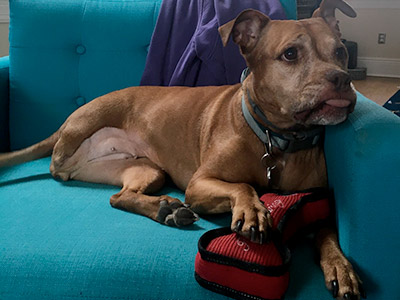Recently, as all the COVID-19 news began to reach a fever pitch, I had my regular meeting with my spiritual director. We had just heard at the Seminary that we would be moving all our credit-bearing courses online and shutting down all non-credit-bearing training. I found that I needed to take a minute to remember who I am beyond what I do. I do experiential education! I work with students to engage embodied leadership practices! I travel to new cities for immersive educational experiences! But not right now I don’t.
My vocation and my calling are to the same things they always were—but the window through which I am able to respond to that calling has narrowed. The form this experience, education, and embodied leadership must take has changed entirely. My spiritual director, who is incredibly wise and a great listener, helped me consider all this without me suffering a complete meltdown.
Being a Pastor During a Pandemic
Indeed, this shift has been illuminating—what if embodied leadership right now is being still and asking the question of what it means to shepherd a people dispersed in their homes—and really hanging out with the question before we act? What if it is organizing for needs to be met through distance—and imagining how we might build that kind of community more permanently? What if the experience we are called to right now is simply trusting that the Holy Spirit holds us all together when we are all physically alone? What if the Christian life I am called to in this moment isn’t about a product but a certain kind of abiding?
Is it possible that who I am isn’t contingent on my proving that what I do with my regular work days is so important that I, the “essential personnel” must continue to do it within this crisis, risking life and limb for myself and everyone else?
Going Back to Basics
This is not to say the education, leadership, church, or life together are to be taken lightly or considered nonessential. But what if the basics of these things are actually ordering my groceries online so I don’t come in contact with anyone, and tipping well because this is a scary time for the gig economy.
What if the basics are sitting with the Holy Spirit and my anxious pit bull (pictured above)—because she is only anxious because I am anxious, and the only way we will learn to trust and be okay, is if we do it together?
What if the basics are calling my grandma and holding space for her fear? What if for a minute I am not a “thought worker” but a human being?
This sounds like a small start and maybe it is, but I’m guessing that if we make space for even a little bit of listening and being with—of holding space and sitting still—we might be shocked at the sort of big things we are being called to as pastors, as parents, as frightened people, and vulnerable advocates in the midst of the COVID-19 crisis.
Friends, wherever you are reading this, I am so glad that by the power of the Holy Spirit, we are in this together. Wash your hands, take deep breaths, don’t forget to stretch and drink water—but really, take a minute in the midst of all this to just be. I think that just might be the heroism/discipleship the world needs right now.
The Rev. Karen Rohrer is director of the Church Planting Initiative at Pittsburgh Theological Seminary. Before joining the CPI team, Karen was co-pastor and co-founder of Beacon, a Presbyterian Church in the Kensington section of Philadelphia. The saints of Beacon taught her contextual ministry, the joy of being church, and the unique grace of being a lady pastor and boss in a neighborhood of matriarchs. The building of Beacon taught her amateur handy-woman and moisture remediation skills, and that a particular space really can be a reminder that you are loved. As director of the Church Planting Initiative, she is excited to vision new ways the church can bear good news to the world and to support and resource the leaders God is calling forth to make it so.


I love this article. It challenges pastors and laity think out of box on ways to help and ministry to people during the pandemic and what ministry will be needed after the pandemic is over.